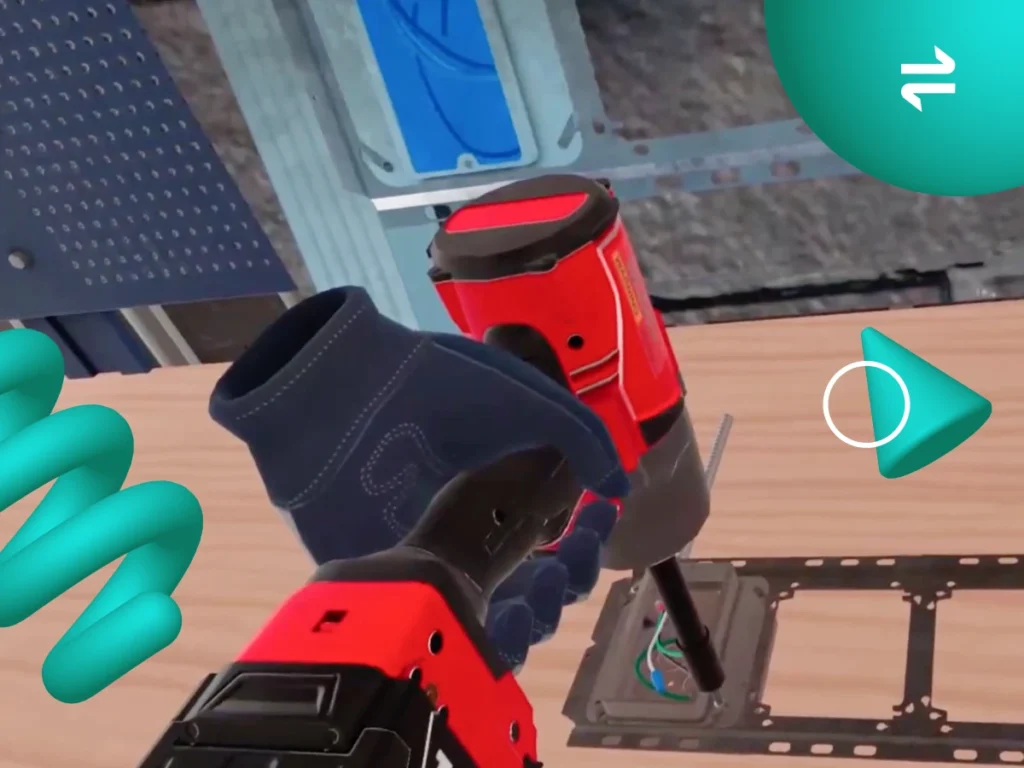Anywhere there’s a conversation about helping people get on their unique pathways to career success, you’ll find a Transfr luminary out there making an impassioned plea for organizations of all kinds to work together and pool their efforts to build complex networks of support. That drive extends all the way to the big stage at South by Southwest EDU (SXSWEDU), where Transfr’s own Kate Kimmer, Director of Special Populations Initiatives spoke alongside Ryan Moser of Resolve Philly, Lucretia Murphy from Jobs for the Future, and Arti Finn from Orijin about how education can be a major force for change when it comes to reducing recidivism, in a panel called “Corrections to Careers: Education for Incarcerated Youth.”
We collected selected highlights from the panel as well as quotes from Kate and the other speakers. It was an amazing opportunity to highlight the changes that Transfr partners are driving for people in the justice-impacted world, especially young learners who have a real opportunity to change the trajectory of their lives and get on pathways towards well-paying jobs in high-growth industries.
The challenge: Reducing juvenile recidivism
As many as 60,000 people under age 18 are incarcerated at any given time in the United States. These young people lack access to many of the social, technological, and educational supports needed to cultivate the skills they’ll need for future success in the workplace. Injecting cutting-edge educational tools and methods into juvenile justice programs is essential for helping lower chronically high rates of juvenile recidivism.
To put this challenge into perspective, the panel opened with a personal testimonial from Ryan Moser, a formerly-incarcerated person and fellow at Resolve Philly. He shared his personal experiences in the criminal justice system and some thoughts on why juvenile education is so vital at this juncture:
“I’m actually formerly incarcerated myself,” Ryan explained. One of the things I remember being the greatest thing I encountered in a world of negativity, was one of my teachers at the [juvenile] center, who always said reading would be my gateway to something better in my future… Education for incarcerated youth is not providing what’s needed right now. It’s important that we focus on career education.”
Making strides for juvenile justice
Education and helping people get on career pathways are vital to reducing recidivism and helping justice-impacted youth build better, brighter futures for themselves and their communities.
“Juvenile justice spends a lot of money incarcerating youth in a system that keeps on perpetuating itself,” says Arti. “The only pathway for someone to remain out of incarceration is education and job training.”
When asked about juvenile justice programs they’d seen have positive impacts and which challenges they were overcoming, panelists shared their own stories from the field. Kate led with her observations about the amazing results seen at the Allen County Juvenile Center:
“The program was so successful that it became an incentive program for the incarcerated youth at the Center. It was so successful that kids were clamoring to get in. It was so exciting that the facility expanded outside the facility to help kids on probation as well.”
Other organizations working in the space are also designing programming that help justice-impacted youths make positive changes in their lives as they work towards more hopeful, productive futures:
“Young people’s brilliance cannot be contained,” says Lucretia. “That brilliance can take any number of forms. [Strong programs for justice-impacted youth] bring in the sorts of opportunities that we would bring in if we believe in that unlimited potential… all the things that are enriching and can enhance the lives of young people.”
Stories like these highlight that progress is being made in terms of helping incarcerated youth build the skills they need to secure jobs with upward mobility in the future. While hurdles do persist, the dedicated professionals seeking to change lives in the juvenile justice system persist as well.
Creating a more equal future, today
The road towards a more equal future for formerly-incarcerated people is far from smooth, which is why policy initiatives like the Fair Chance Act are so important when it comes to making sure that people with criminal records are able to secure employment post-release. Lucretia and the team at Jobs for the Future provide trainings for Fair Chance companies which aim to dispel myths surrounding hiring formerly incarcerated people, as well as how best to train young learners who have been justice-impacted.
There’s no one perfect, simple solution to the complex web of challenges that face people seeking to educate incarcerated youth. However, companies like Transfr and the others on this panel prove that when we all work together, there’s great potential for making great changes in the lives of people who could really use a second chance:
“We have an opportunity to invest in these young people,” Kate says. “They are right here. They deserve this level of community and support. Given the opportunity and the investment, they will return this investment many times over.”
Want to learn more about Transfr’s efforts to help justice-impacted youth?




